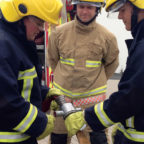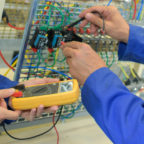 16-18
16-18

Computing and IT

Construction & Building Services

Creative & Visual Arts

SEND Provision

Sport & Public Services

T-Levels

Travel, Tourism & Events
 Apprenticeships
Apprenticeships

Accountancy & Bookkeeping

Business & Administration

Catering & Hospitality

Construction & Building Services

Customer Service

Engineering & Automotive

Hair & Beauty

Health, Social Care & Early Years

Plumbing

Teaching
 University Level
University Level

Engineering & Automotive

Health, Social Care & Early Years

Sport & Public Services
 Adult Learning
Adult Learning

Access to Higher Education

Accountancy & Bookkeeping

Creative & Visual Arts

Dorset Training Academy

Electrical

Green Skills

Hair & Beauty

Teacher Training
 Physics
Physics
Physics A Level
In Short
Physics is the study of fundamental quantities and events, the scale of our universe and how science quantifies and describes our world. You will develop an awareness of the applications of physics and how it relates to everyday life.
You will explore a wide variety of areas which may include nuclear, astro and thermal physics. This A level will prepare you for many higher education courses particularly those in the fields of Engineering, Mathematics and Pure Science.
100% pass rate in A Level Physics in 2020 – 4.7% above National Average
“A level science means studying in depth – our teachers have experience and knowledge that makes study really enthralling” Dylan
Entry Requirements
At least 5 GCSEs at Grade 9-5 plus a minimum Grade 6 (B) in Maths as well as Grade 6 (B) in Double Award Science or Grade 6 (B) in Physics.
Course Content
Physics is the study of fundamental quantities and events. You will develop an awareness of the applications of physics and how it relates to everyday life. A Level physics can lead to many higher education courses particularly in the fields of engineering, mathematics and pure science.
AS units
- Particles, quantum phenomena and electricity
- Mechanics, materials and waves
A2 units
- Further mechanics
- Gravitational fields, electrostatic and magnetic fields
- Nuclear physics, thermal physics and an optional topic
Progression
Physics students develop desirable skills for both employment and higher education. The study of Physics cultivates skills in problem solving, the scientific method, being able to communicate complex ideas and logical reasoning. Previous Physics students have gone on to study courses at university level such as Physics, Physics with Astronomy, Foundation Physics and Economics. Students have accepted places at Exeter, Surrey, Sussex and Brunel, with additional offers from Russell Group Universities.
Your Tutor - Neil Johnson
BSc (Hons) Physics
I have worked at Weymouth College for 12 years, except for one year when I did a bit of travelling. I returned to teaching Physics at college because I love seeing people develop the skills needed to go on to a Physics or Engineering degree at university, and I enjoy helping those who initially find topics in Physics and Maths challenging.
I think Physics is so diverse that there’s something for everyone, which other subject covers the entire universe?!
Fees
If you are aged 16-18 as of 31 August on the year of enrolment – no course fee. If you are over 19 as of 31 August and enrolling on a full-time programme of study a tuition fee will be applicable in most cases. Bursary funds There are financial support arrangements for 16-18 year olds and hardship funds available for the over 19s. Please contact our Information Centre for details of costs and concessions on 01305 761100 or email enquiries@weymouth.ac.uk









